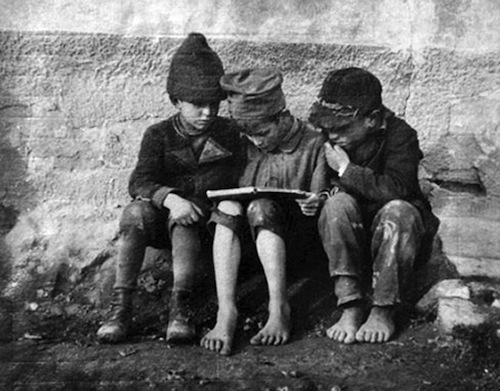Why is Contemporary American Poetry So Good/Bad?

As a result of "Why is modern poetry so bad?" and "Poetry Slam: Or the Decline of American Verse," Seth Abramson has posted "Why Is Contemporary Poetry So Good?" at Huffington Post.
Abramson writes:
Because there are exponentially more poets writing or committed to writing accomplished poetry today than has ever been the case in the history of the United States, either as a percentage of total population or as an absolute number. Because this means that, within the next few years, almost every American of a certain age will know or be related to someone who writes or is committed to writing accomplished poetry, which puts the workaday commitment to poetry so many Americans share front and center in the lives of millions and millions of Americans who are not poets.
Because there is more poetry being published today than has ever been published in the United States, because there are more print and online magazines publishing poetry, more trade and university and independent presses publishing poetry, more poetry reading series, more poetry anthologies, more poetry festivals, more private poetry groups, more poetry conferences, more articles written about poetry in major media, and more reviews of contemporary poetry collections than ever before, and this means Americans are as or more likely today than at any time in American history, in a culture as cluttered as any in the history of humankind, to come across exemplars of contemporary poetry willingly or inadvertently while going about their daily lives.
Because creative writing is the fastest-growing field of study in the United States, and the fact that there are now more than 250 terminal-degree graduate creative writing programs in the United States, graduating more than 2,200 committed poets each year and 22,000 each decade, means that more conversations about poetry are now happening in the United States than have ever happened, because the offline poetry conversations that have always been ubiquitous in bohemian enclaves are now joined by untold thousands of such conversations happening every semester on college and university campuses. Because the fact that there are so many graduate creative writing programs means that communities in which poetry is discussed between and among committed poets are now located in every state in America, rather than headquartered in just a small number of coastal redoubts. Because graduate creative writing programs are not run or staffed by doctorate-holders whose love of poetry is primarily academic and therefore esoteric in the view of the overwhelming majority of Americans, but rather by working poets whose love of the written word suffuses not only their on-campus dialogues about poetry, but also their off-campus dialogues and, because poetry invariably finds its way into all corners of every life that admits it, every interaction they have with friends, family, coworkers, and acquaintances.
Read more of Abramson's response to both articles, at Huffington Post.


